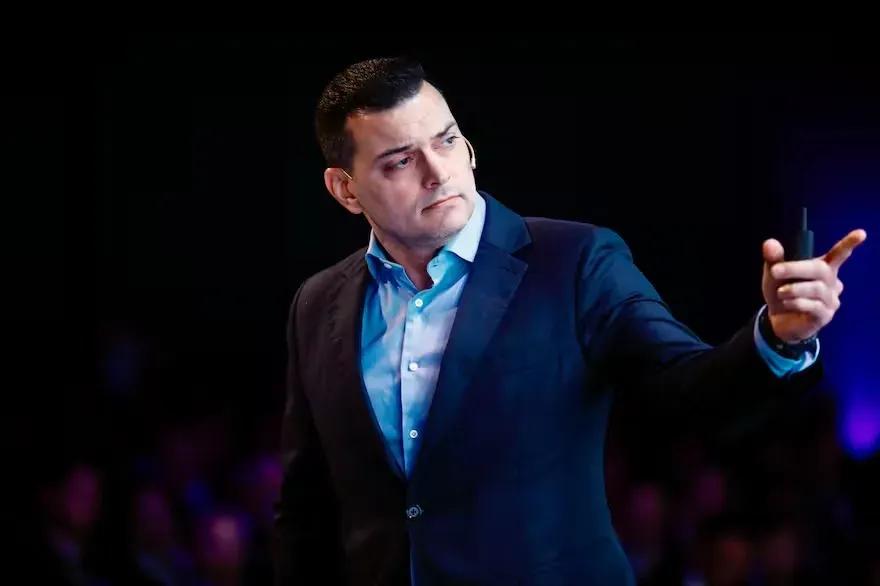For days, the political discussion has revolved around the idea of a "cash tax," but honestly, I believe that this is the least relevant issue. The messenger of this initiative is Emanuel Álvarez Agis —former deputy minister of Kicillof— and he presents himself as a Peronist who admits his own faults, criticizes Kirchnerism without euphemisms, and proposes concrete measures in a national broadcast filled with controversies. That combination unsettles an opposition that had been comfortably positioned in the “anti Milei” camp and raises an uncomfortable question: who leads Peronism when someone from within puts numbers, costs, and priorities on the table?
The anecdote is the tax; the news is the issuer
Agis ignited the spark with a provocative phrase taken out of context: “We must impose a tax on cash.” The clip became fuel for an endless Twitter discourse where even President Javier Milei joined in. But in the full interview, he insists that the central piece of his proposal is to eliminate the check tax, reduce the burden on SMEs, and compensate for that gap with a disincentive to use cash to enforce formalization.
That is the point: he didn’t come to wave the flag; he came to show the plan. And when someone from Peronism brings a plan, the bar is raised for everyone else.
The “non-aligned Peronist” who shatters the mirror
The second element is political and hits home. Agis stated in a recent interview on LN+ that "I haven’t felt identified with the role of Kirchnerism for a long time" and questions that Cristina’s criticisms of Milei “miss the mark”. We are not talking about a neutral figure; he is a former official from the Kirchnerist cycle.
His distance is not moral or aesthetic: it is technical. He indicates that the Peronist opposition lacked a competitive offer and, worse, flirted with recipes that cause runs (“tax on flight” or “not paying the IMF”).
That acknowledgment disassembles the rhetorical refuge of the last Peronism: denouncing the adjustment without recognizing the legacy of an "empty" Central Bank or the wear of having governed most of the last 20 years. Agis doesn’t buy the epic; he buys the balance.
Kirchnerism vs the entire world
Kirchnerism campaigned with blind faith that Javier Milei and accusations of potential corruption would be enough. That’s why their candidates didn’t speak, they didn’t make proposals, and they failed to suggest something more than the famous "stop Milei".
Not only did they not make proposals, but the most serious issue is: they couldn’t say what was right about the Libertarian administration. This, far from being illogical in political strategy, for a society that has been suffering from inflation for decades, uncontrolled street blockades, and a nonexistent fight against drug trafficking, by not stating that they are in favor of everything considered positive, Kirchnerism raises doubts: if they return, will it regress?
Thus, Kirchnerism positioned itself against not only the anti-Peronist electorate but also against its own people who have serious doubts about what real learnings the Fernández-Fernández experience left, if anything positive at all.
The challenge facing 2027: reformulating identity, not the hashtag
The discomfort for Peronism/Kirchnerism is obvious: breaking from a comfort zone where nothing more than the classic slogans of the movement was ever necessary. Agis is a problem for Peronism because he breaks the monotony by demonstrating that it is possible to criticize one’s own, value what works from others, and, above all, offer a design.
This forces them to move away from the anti and return to the why. The paradox is that Peronism needs problems like this: internal opponents who elevate the conversation and bring back programmatic depth.
While the clip about the "cash tax" continues to gain retweets, the news we will gradually notice is a fierce internal conflict in the opposition to Javier Milei: those who will continue to discuss from slogans and those who will seek to dominate the media agenda with disruptive proposals.

Comments